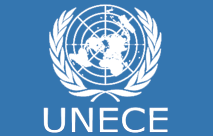
Removing regulatory and procedural trade barriers
National Assessment Studies
The UNECE assessments cover the whole array of commercial, transport, regulatory, financial and procedural measures associated with the movement of goods across borders. These measures are ascertained, through actor-oriented questionnaires, on in terms of their impact on transaction costs and in terms of their consequences for the country’s development prospects.
The questionnaires target supply chain actors, including traders, State officials, transport operators, logistical service providers and market support institutions, with a view to identifying capacity shortfalls undermining overall end-to-end value chain operations. Actors are assessed in terms of their contribution to increasing the efficiency, transparency and predictability of trade, as opposed to their functional performance. Attention is also given to trade documents and procedures, which are measured against key trade facilitation principles, including transparency, communications, consultations and cooperation; simplification, practicability and efficiency; non-discrimination, consistency, predictability and due process; harmonization, standardization and recognition; and the use of modern information and communication technology systems
The studies provide an evidence-based tool for gearing trade reforms towards supporting the achievement of the 2030 Sustainable Development Goals (SDGs). The studies bring forward the interplay between regulatory and procedural trade barriers, regional and global dynamics, all the way tracing the impact on structural transformation (SDG 9) and job creation (SDG 8). They also provide action oriented recommendations that are born out of public-private consultations, with a view to support a “whole of government” approach to non-tariff measures (NTM) reforms.
